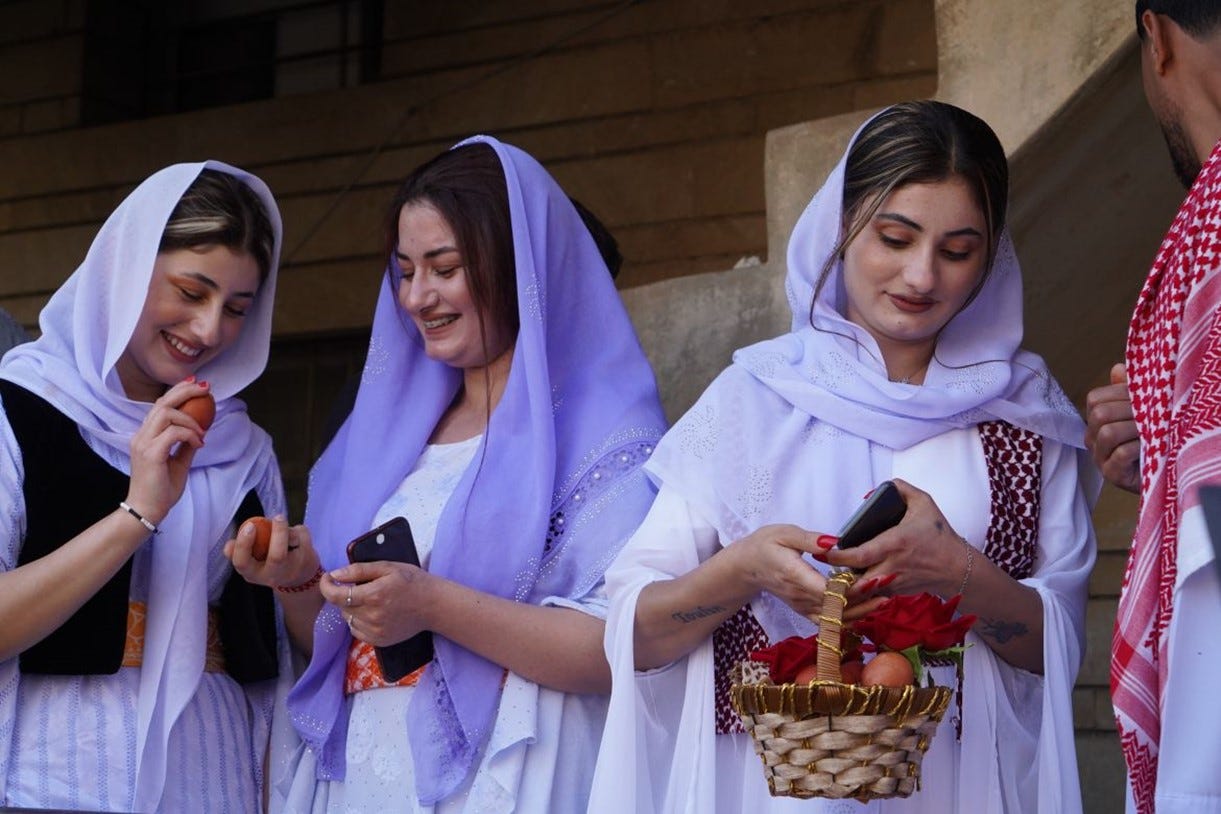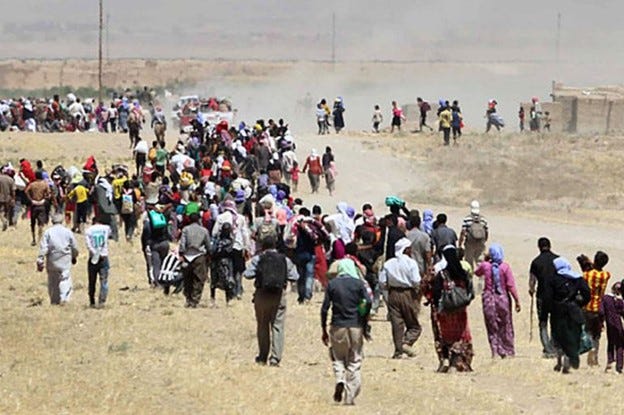The Yazidis, Annihilated Simply for Existing
In 2014, one of the world’s oldest religious communities was nearly erased in a matter of weeks. The Yazidis of northern Iraq were slaughtered, enslaved, and brutalized by the Islamic State with a cruelty that defies comprehension — elderly women buried alive, mothers forced to witness their children torn from them, young girls sold and raped, others burned alive in iron cages. It was genocide in plain sight.
And yet, unlike other conflicts that bring millions into the streets, the world barely stirred. There were no mass protests in Western capitals, no universities occupied, no week after week of headlines. The Yazidis had no global diaspora to amplify their plight, no ideological movement to make their suffering useful to the political left or right. They were annihilated simply for existing — and the silence that followed their cries indicts not only their killers, but the world looked away.
The contrast is stark. Today, protests rage across the world for Gaza, framed as a struggle of oppression and resistance. But when an entire people was almost wiped out in Iraq, the silence was deafening. This double standard forces us to ask: Is our outrage really about human suffering, or is it about which causes can be exploited for political gain? Most religions have a horrific past, but Islam is still horrific in the 21st Century and will be until the end of time.
Selective Outrage
The Indictment
The Islamic State’s assault on the Yazidis has been recognized by the United Nations as genocide. The crimes were clear, the victims defenseless, the suffering unimaginable. Yet the Yazidis never became symbols of the world’s conscience. Unlike the Palestinians, they did not have powerful states, media networks, or activist movements championing their cause. Their tragedy did not fit into any mainstream narrative.
In moral terms, the Yazidis deserved ten times the outcry. Unlike Gaza, they had not launched rockets, declared jihad, or attacked their neighbors. They were targeted solely for their identity, simply for being who they were. If human rights meant what we pretend they do, the genocide of the Yazidis would have mobilized millions. Instead, their blood cried out into silence.
When we look at the Yazidis, we are forced to admit that compassion has become selective. Human rights are proclaimed loudly when convenient, whispered when not.
History will not remember only the killers of the Yazidis. It will also remember the silence. For silence is a form of complicity. It testifies that propaganda, politics, and selective empathy now decide which lives are grieved and which are forgotten.
The Yazidis were annihilated simply for existing. The fact that their genocide passed without mass outrage condemns not only their executioners, but the world that turned its face away. The Yazidis’ blood does not only stain the hands of ISIS — it stains the silence of a world too cowardly to name Islam’s cruelty for what it is. Genocide ignored is genocide invited. What happened to the Yazidis is not past — it is a warning of what still walks the earth under the banner of faith.




Evangelical Christians who still support the slaughter in Gaza need to explain how it is Christian to starve little children and murder many thousands of innocent, unarmed women, children, and old men.
The world is a twisted horror show, but the silent majority make it so.